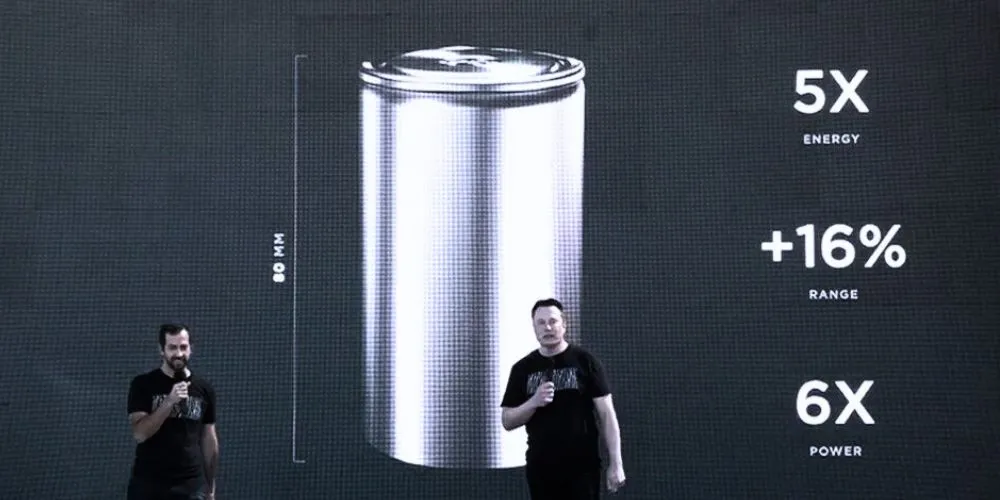Tesla’s Battery Day, held in September 2020, was a pivotal event that showcased the company’s advancements in battery technology and its vision for the future of energy storage. Tesla, Inc. continues to lead the electric vehicle (EV) industry; the innovations announced during this event highlighted the critical role of batteries in achieving sustainable energy solutions. This case study delves into the key developments presented at Battery Day, Tesla’s challenges in the energy storage sector, and the implications for the broader automotive and energy industries.
Background of Tesla’s Battery Innovations
Tesla, Inc., founded in 2003, has positioned itself at the forefront of the modern EV and energy storage industries. With a mission to accelerate the transition to sustainable energy, Tesla has focused on developing cutting-edge battery technology to power its EV and energy products.
Early Innovations in Battery Technology
Tesla’s journey in battery technology began with its partnership with Panasonic to produce lithium-ion batteries for its electric vehicles. Tesla’s introduction of the Model S in 2012 marked a significant milestone, showcasing the potential of electric cars powered by high-capacity batteries. Over the years, Tesla has continually improved its battery technology, enhancing energy density, efficiency, and cost-effectiveness.
The Gigafactory Vision
The establishment of Tesla’s Gigafactories has played a crucial role in scaling battery production. The Gigafactory 1 in Nevada, which began operations in 2016, was designed to produce batteries at an unprecedented scale. This facility aimed to reduce battery costs through economies of scale, making EVs more accessible to consumers and accelerating the adoption of sustainable energy solutions.
Key Innovations Announced at Battery Day
During Battery Day, Tesla unveiled several groundbreaking innovations that promise to transform the energy storage landscape.
The 4680 Battery Cell
One of the most significant announcements was introducing the new 4680 battery cell design. This larger cell format is expected to significantly improve energy density and reduce costs. By increasing the size of the cells, Tesla can enhance the overall energy storage capacity while simplifying the manufacturing process.
Structural Battery Packs
Tesla also introduced the concept of structural battery packs, which integrate the battery cells into the vehicle’s structural framework. This innovation reduces the vehicle’s weight and enhances rigidity and safety. By making the battery a fundamental part of the vehicle’s architecture, Tesla aims to improve overall performance and efficiency.
Reduction of Cobalt Usage
A critical aspect of Tesla’s battery innovations is the reduction of cobalt in its battery chemistry. Cobalt is a costly and ethically challenging material due to supply chain issues and mining practices. Tesla’s new battery chemistry aims to decrease reliance on cobalt, making batteries more sustainable and cost-effective while ensuring better supply chain stability.
Challenges Facing Tesla in Battery Development
Despite the promising innovations, Tesla faces several challenges in its quest to revolutionize battery technology.
Scaling Production
One of the primary challenges is scaling production of the new 4680 cells and structural battery packs. The ambitious plans to ramp up production to meet the growing demand for electric vehicles require significant investment in manufacturing capabilities. Tesla must ensure its Gigafactories can produce these new cells at scale without compromising quality.
Competition in the Battery Market
As Tesla continues to innovate, it faces increasing competition from established automakers and new entrants in the battery market. Companies like LG Chem, Panasonic, and CATL invest heavily in battery research and development to capture a share of the growing EV market. This competition may pressure Tesla to accelerate its innovations and maintain its leadership position.
Supply Chain Constraints
The global supply chain for battery materials, particularly lithium and nickel, has become a significant concern. As demand for electric vehicles rises, securing a stable supply of these critical materials is essential. Tesla must navigate geopolitical factors, environmental regulations, and market fluctuations to ensure it can source the necessary materials for its batteries.
Implications for the Automotive and Energy Industries
Tesla’s innovations in battery technology have far-reaching implications for both the automotive and energy sectors.
Advancements in Electric Vehicles
The breakthroughs announced at Battery Day will likely accelerate the adoption of EVs by making them more affordable and efficient. As Tesla reduces battery costs, other automakers may follow suit, leading to a broader shift toward electric mobility. This transition could significantly reduce greenhouse gas emissions and reliance on fossil fuels.
Growth of Energy Storage Solutions
Beyond vehicles, Tesla’s advancements in battery technology are poised to impact the energy storage industry. With the growing demand for renewable energy sources like solar and wind, efficient energy storage systems are essential for stabilizing the grid and ensuring reliable power supply. Tesla’s innovations could lead to more accessible and efficient home and commercial energy storage solutions.
Influence on Policy and Regulation
Tesla’s progress in battery technology may influence policy decisions regarding electric vehicles and renewable energy. Governments worldwide are increasingly promoting sustainable transportation and clean energy initiatives. Tesla’s advancements could serve as a model for regulatory frameworks to encourage innovation and investment in the green economy.
Future Outlook for Tesla’s Battery Technology
Tesla’s battery technology will likely continue to evolve, shaping the future of the automotive and energy industries.
Continued Research and Development
Tesla has committed to ongoing research and development to improve battery performance and sustainability. The company may explore new chemistries and materials that enhance energy density and reduce environmental impact as technology advances. The focus on innovation will be crucial in maintaining Tesla’s competitive edge.
Expansion of Gigafactories
Expanding Gigafactories globally will be pivotal for scaling production and meeting increasing demand. Tesla plans to build additional factories in critical markets, such as Europe and Asia, to enhance its supply chain and reduce transportation costs. This expansion will support Tesla’s ambition to produce millions of electric vehicles annually.
Integration with Renewable Energy Systems
Tesla’s battery technology is expected to be vital in integrating renewable energy solutions into the grid. As the world transitions to green and cleaner energy, Tesla’s energy storage solutions can provide the necessary backup power to ensure grid stability. Combining electric vehicles and energy storage systems will facilitate a more sustainable energy ecosystem.
Conclusion
At Tesla’s Battery Day, the company highlighted a significant advancement in energy storage technology, unveiling innovations that could transform both the automotive and energy industries. Introducing the 4680 battery cell, structural battery packs, and reduced cobalt usage reflects Tesla’s commitment to advancing sustainable technology. However, challenges such as scaling production, competition, and supply chain constraints remain. As Tesla navigates these challenges, its innovations will influence the future of electric vehicles and contribute to the global transition toward renewable energy. The advancements announced at Battery Day set the stage for a new era in energy storage, with the potential to drive meaningful change in how we power our lives.












